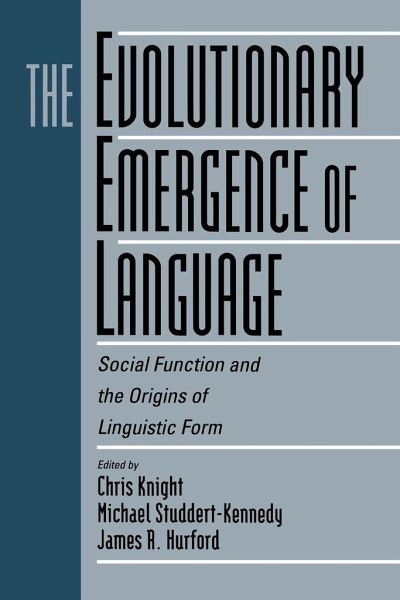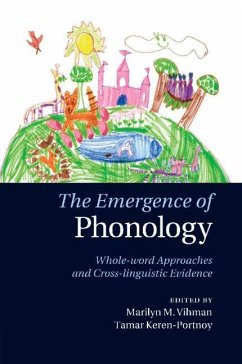
The Evolutionary Emergence of Language
Social Function and the Origins of Linguistic Form
Herausgeber: Knight, Chris; Hurford, James R.; Studdert-Kennedy, Michael
Versandkostenfrei!
Versandfertig in 1-2 Wochen
63,99 €
inkl. MwSt.
Weitere Ausgaben:

PAYBACK Punkte
32 °P sammeln!
The Evolutionary Emergence of Language covers the origins and early evolution of language. Its main purpose is to synthesize current thinking on this topic, particularly from a standpoint in theoretical linguistics. It is suitable for students of human evolution, evolutionary psychology, linguistic anthropology and general linguistics. It is the outcome of a major international conference on the evolution of language and includes contributions from many of the best known figures in this field. Very few truly interdisciplinary volumes on this topic have previously been published.














